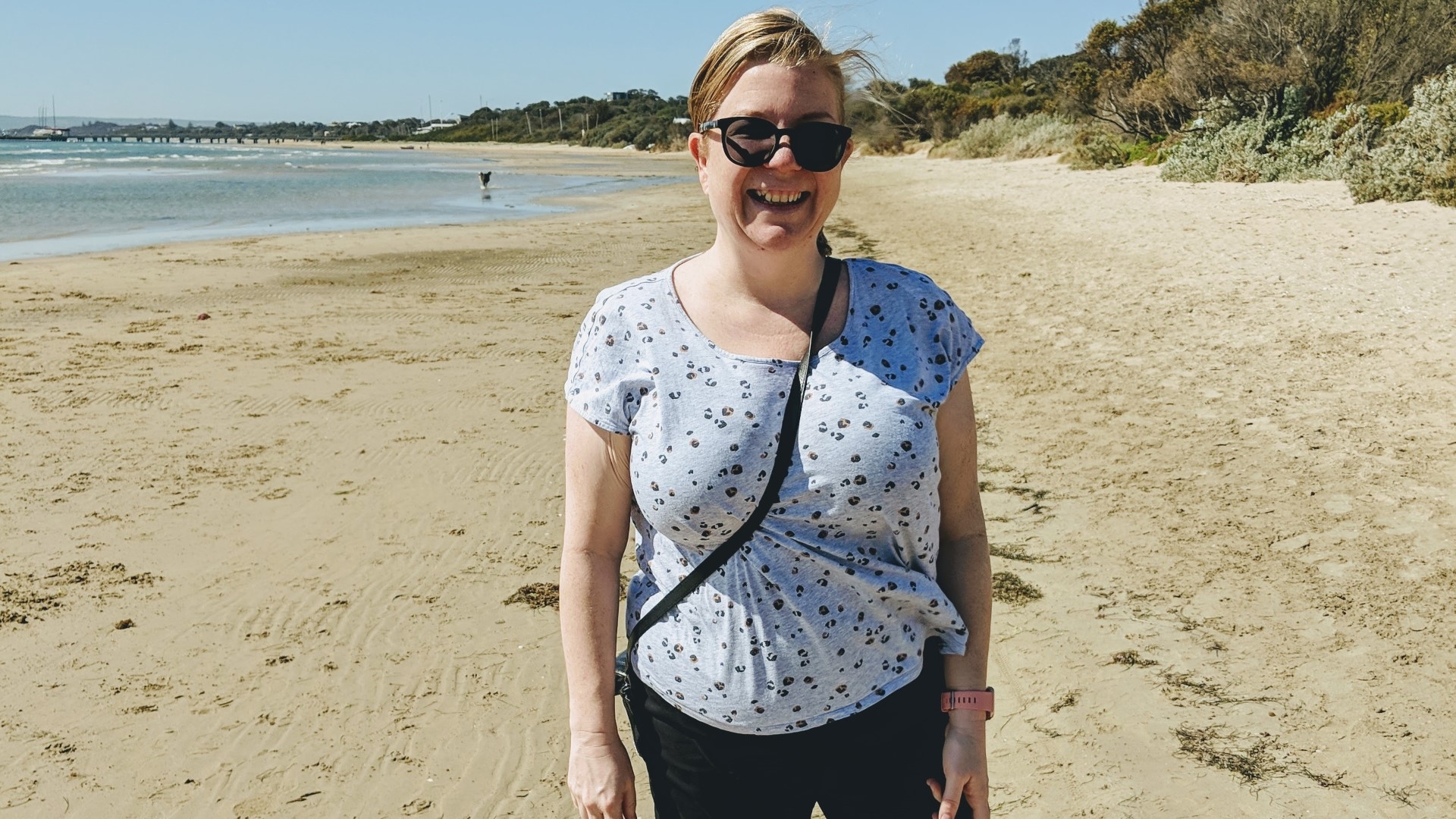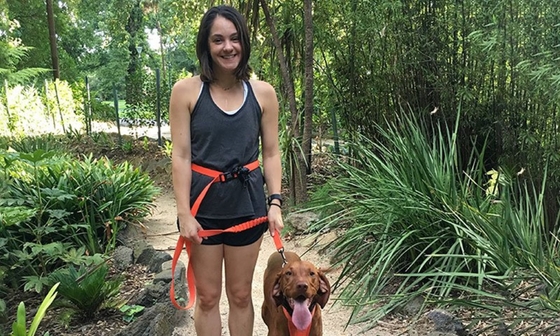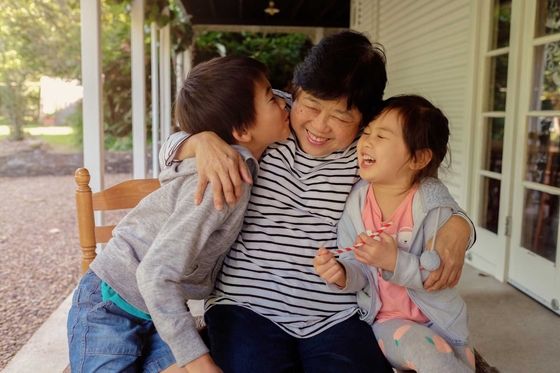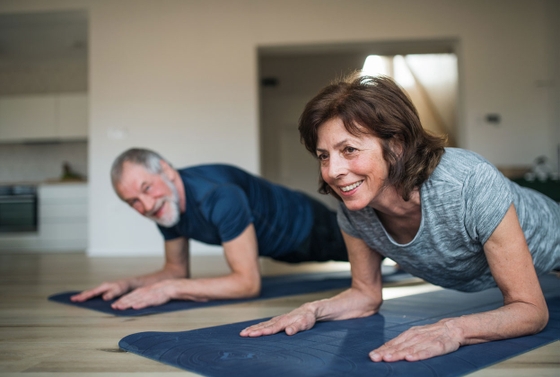
Cardiomyopathy; another health curveball for Ange
Blog: 12 October 2020
A story from Ange Foster
By the age of 38, Ange Foster felt she had a good grasp on how to navigate life’s curveballs, especially when it came to her health.
However, in her early 30s, she was diagnosed with two chronic conditions: Hashimoto’s Disease (when your immune system attacks your thyroid and it stops producing hormones) and Fibromyalgia (a condition that causes pain in the muscles and bones, along with fatigue and poor sleep).
After each diagnosis, she became what she calls “a proactive participant in my own health”: Ange dove into educating herself on her conditions, and what she needed to do to get on with her life.
But her next health challenge proved to be the big one.
“I had just come back from Bali and started to feel tired and unwell. I thought I had caught a virus, or my other conditions were causing the fatigue and cold-like symptoms,” Ange explains.
Her symptoms worsened: she began to feel breathless when walking and would wake in a cold sweat. A trip to her GP revealed she had dangerously high blood pressure and a very fast heart rate: she was told to go straight to the hospital.
Several tests and a couple of hospital trips later, Ange was diagnosed with severe dilated cardiomyopathy (a disease of the heart muscle, where the heart cannot pump blood as well as it should), putting her at risk of needing an automated external defibrillator (AED) or, potentially, a heart transplant.
“The first few days in hospital after my diagnosis, I felt so alone and out of place. Apart from the nurses, I was the only young person in the ward. My immediate needs were to understand what I was dealing with, and what I could do to educate myself to support my body and my lifestyle,” Ange said.
Learning more about her condition and the support available
Ange felt that information about cardiomyopathy was aimed towards older patients, and most of it did not resonate with her. She was also determined to find a cardiologist who would understand what it was like to be a young woman, thinking about starting a family, with heart failure.
“Those days in hospital, and the three months of recovery after, were the first time I had experienced social isolation. I became focussed on my mortality. Everything I read suggested I may only have 10 to 15 years to live, so I wanted to understand what the condition meant for a young person like me,” Ange explained.
After reading a Heart Foundation brochure in the hospital, she discovered Supporting Young Hearts.
I got onto the Supporting Young Hearts webpage and watched videos of young people talking about their experiences; it really connected with me. I thought, “Great there are other people out there like me!"
The resources were fantastic. I felt like I had finally found a home like I belonged somewhere."
Ange is now on the Supporting Young Hearts Advisory Group and is passionate about helping young people connect to the program and to each other.
“The Supporting Young Hearts community is like your own wolfpack. If you’re having a bad time, you can go into the group, and you will be surrounded by people who understand and can give you advice and support,” Ange said.
Ange’s tips for young people living with a heart condition
Try to find a cardiologist who understands what it’s like, and what the challenges are for a young person to live with a heart condition
See your GP regularly; they are important in helping you manage your recovery and life with a heart condition
If this service is available, go to cardiac rehabilitation. “I thought I wouldn’t learn anything, and I was wrong. Cardiac rehabilitation got me out of the house and gave me the confidence to get back to living my life. I could relate to every person there, regardless of their life stage,” Ange recalled.
Take your medication, it is saving your life. Try to eat well and get more sleep.
Connect through Supporting Young Hearts. “The Facebook group is a gentle way to understand the world you are entering. It’s such a supportive and engaging group, and a very easy way to meet people just like you," Ange said.
The Supporting Young Hearts program is there for people, aged 18 to 45 years who are living with a heart condition or recovering from heart surgery. It aims to help younger people connect and support each other by sharing stories and learning how to manage their condition and keep their hearts healthy.
You might also be interested in...

Exercising for heart and soul
Alicia Philipatos was three days old when her heart condition was diagnosed. She endured many hospital visits and treatments as a child, but at age 29, had to face open heart surgery for a valve replacement. During this time, dealing with a roller coaster of emotions, Alicia took to blogging and exercising. In this blog, she talks about the important role exercise continues to play in her life.

Women's heart stories
Heart disease affects women of all ages. Watch real stories from women and their journeys with heart health, recovery, and the importance of early detection.

Physical activity after a heart attack
Discover what you need to know about being active after a heart attack.
Last updated27 February 2024